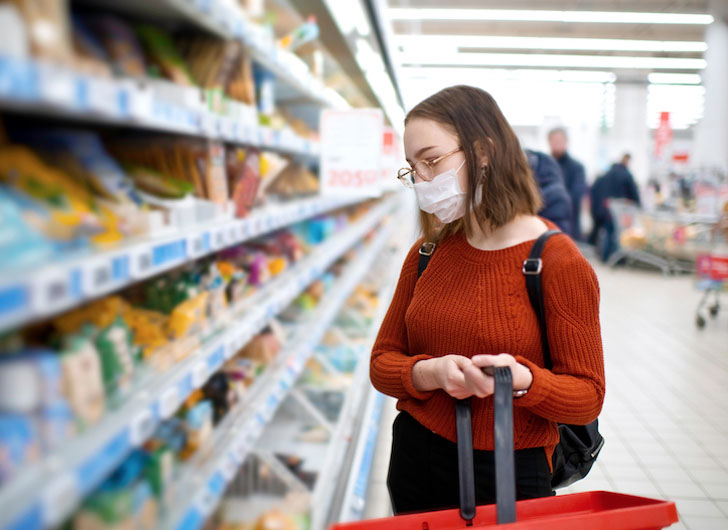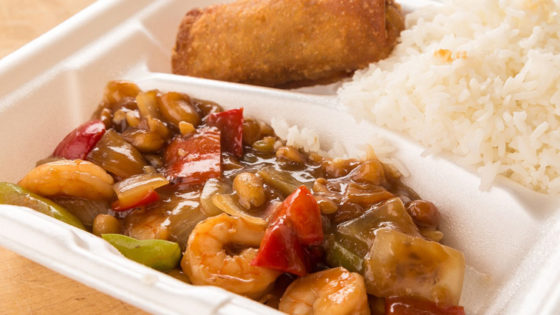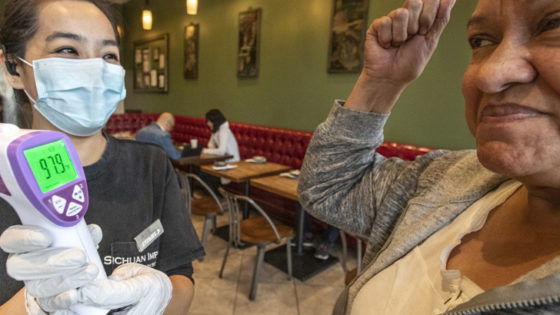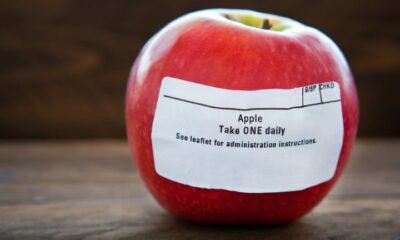FOOD
Should You Wipe Down Your Groceries? The FDA Weighs In
Published
5 years agoon
 Source: iStock
Source: iStock
With many of us navigating the current coronavirus situation by wearing non-surgical facemasks when out in public, washing and sanitizing our hands frequently, and changing our clothes when we come home from essential outings, we wonder ‘should we also be sanitizing our groceries?’
The coronavirus pandemic has certainly changed the way we operate when we leave our homes, but can you catch the virus from groceries and should you wipe them down before bringing them inside the house? Here’s what the FDA has the say:
“ICYMI: FDA has heard your concerns about shopping for food safely,” the FDA tweeted. “We want to assure you there is currently NO evidence of human or animal food or food packaging being associated with transmission of COVID-19.”ICYMI: FDA has heard your concerns about shopping for #food safely. We want to assure you there is currently NO evidence of human or animal food or food packaging being associated with transmission of the #COVID19 . More food shopping info here: https://t.co/D0g6HSCNGV
— FDA FOOD (Ctr for Food Safety & Applied Nutrition) (@FDAfood) April 21, 2020
“We want to reassure consumers that there is currently no evidence of human or animal food or food packaging being associated with transmission of the coronavirus that causes COVID-19,” the FDA wrote in a press release shared via Twitter. “This particular coronavirus causes respiratory illness and is spread from person-to-person, unlike foodborne gastrointestinal or GI viruses, such as norovirus and hepatitis A that often make people ill through contaminated food.”
The FDA released the following safety steps to help protect yourself, store workers and other shoppers when heading to the grocery store:
1. Prepare a shopping list in advance. Buy just 1 to 2 weeks-worth of groceries at a time. Buying more than you need can create unnecessary demand and temporary shortages. 2. Wear a face covering or mask while you are in the store. Some stores and localities may require it. Check your state, county or city guidelines for any other requirements. 3. Carry your own wipes, or use one provided by the store to wipe down the handles of the shopping cart or basket. If you use reusable shopping bags, ensure they are cleaned or washed before each use. 4. Practice social distancing while shopping – keeping at least 6 feet between you, other shoppers, and store employees. Keep your hands away from your face. 5. Wash your hands with warm water and soap for at least 20 seconds when you return home and again after you put away your groceries. 6. Again, there is no evidence of food packaging being associated with the transmission of COVID-19. However, if you wish, you can wipe down product packaging and allow it to air dry, as an extra precaution.
More From Lifestylogy
-


Aldi Rolling Out Curbside Pickup to 600 Stores This Summer
-


McDonald’s Adding New Bakery Items to McCafé Menu
-


30 Fruits And Vegetables And How To Optimize Nutrition While…
-


25 Easy Lunch Ideas That Come Together In Less Than…
-


Maryland Becomes First State to Ban Foam Food Packaging Containers
-


Restaurant Chain Checking Customers Temperatures Amid COVID-19 Fears
-


Jimmy John’s Officially Enters the Chicken Sandwich Wars
-


Dairy Queen’s Beloved Free Cone Day Returns This Year
-


Aldi Unveils the Perfect Staycation Wine Offering


The Ultimate Guide to Angel Numbers and Their Meanings
Angel numbers are more than just random sequences of digits—they are believed to be powerful messages from the universe or...


27 Ways to Successfully Step Outside of Your Comfort Zone
Stepping out of your comfort zone can feel intimidating, but it’s one of the most rewarding ways to grow as...


22 State Laws That Are Hard To Believe They Actually Exist
Every state in the U.S. has its fair share of unusual laws, some of which are so bizarre they leave...


An Apple a Day: 20 Reasons This Superfruit Keeps the Doctor Away
Apples have long been celebrated as one of nature’s most perfect fruits, providing a tasty and nutritious snack for people...
